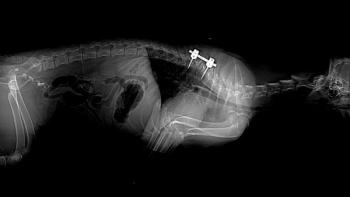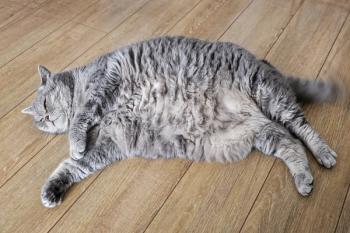
Certain feline seizures indicate hippocampal damage
When a cat experiences seizures that do not impact the entire body, this may indicate changes in the hippocampus of the cat's brain.
VIENNA, AUSTRIA — When a cat experiences a seizure that does not impact the entire body, it may indicate changes in the hippocampus of the cat's brain, new research shows.
Some cats will have seizures where consciousness is impaired and some parts of the body are not affected, confirms Akos Pakozdy and colleagues at the University of Veterinary Medicine, Vienna, Austria. These cats may have alterations in the hippocampus as a result, which is the part of the brain most impacted in human epilepsy.
In terms of treatment, such cats with hippocampal damage may not have an instant treatment response; however, after a few days, the treatment may begin to work. If treatment is continued, the cats may exhibit normal behavior. The complete findings can be found in the current issue of the Journal of Feline Medicine and Surgery.
Researchers studied 17 cats that were brought to the Clinic for Internal Medicine and Infectious Diseases with certain epileptic signs. Study findings showed that all affected cats had hippocampal and related structural alterations. Of significance, no structural issues were detected in other brain areas.
Nine cats had conditions so severe that there were no other options in terms of treatment. In the other cases, the researchers noticed that treatment seemed not to work for the first four to 11 days; however, when researchers extended treatment beyond the 11-day duration, a number of the cats responded well.
Pakozdy says that what is new in terms of findings with this study is twofold: First, specific ictal changes (complex partial seizures with orofacial involvement) are related with hippocampal pathology and with no other diseases. Second, such cats do not necessarily have a fatal outcome.
Researchers suggest that it is recommended that veterinarians treat the condition as soon as they can to lessen damage to the hippocampus. Importantly, they also note that contrary to previous studies' findings, cats with hippocampal damage may have a better prognosis than previously thought.
"What's important to note about the study findings is that we should not make plans to euthanize the patients in the acute stage of the disease based on the therapy-resistant seizures and behavioral changes, but wait longer because remission can occur," Pakozdy says.
The paper, titled "Complex partial cluster seizures in cats with orofacial involvement" by Pakozdy, Andrea Gruber, Sibylle Kneissl, Michael Leschnik, Peter Halasz and Johann G. Thalhammer, is published in the current issue of the Journal of Feline Medicine and Surgery.
Newsletter
From exam room tips to practice management insights, get trusted veterinary news delivered straight to your inbox—subscribe to dvm360.






